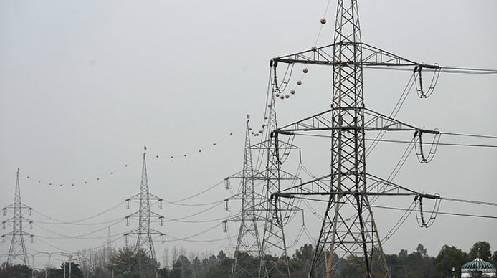ISLAMABAD: Pakistan’s two state-run gas utilities — Sui Northern Gas Pipelines Limited (SNGPL) and Sui Southern Gas Company Limited (SSGC) — have sought steep increases in prescribed gas prices for fiscal year 2025-26 to offset a combined revenue shortfall exceeding Rs77 billion.
In their separate petitions submitted to the Oil and Gas Regulatory Authority (OGRA), both utilities cited surging costs, rising depreciation, and imported RLNG expenses as key drivers behind the proposed adjustments.
SNGPL, which caters to Punjab and Khyber Pakhtunkhwa, requested a hike of Rs189 per million British thermal units (MMBTU), raising its average prescribed price to Rs1,955.50 per MMBTU from the current Rs1,766.50. The company estimated a revenue shortfall of Rs52.96 billion for FY2025-26, attributing it to higher RLNG costs, operating expenses, and asset depreciation.
Meanwhile, SSGC — serving Sindh and Balochistan — sought an increase of Rs125.41 per MMBTU, pushing its average prescribed price to Rs1,783.96 per MMBTU, up from Rs1,658.55. The southern utility projected a Rs24.05 billion deficit, primarily due to escalating gas purchase costs, depreciation, and financial charges.
Additionally, SSGC has claimed Rs34.25 billion (Rs178.59 per MMBTU) related to previous years’ unrecouped shortfall, bringing its total proposed average prescribed price to Rs1,962.55 per MMBTU.
Both petitions, filed under Section 8(2) of the Oil and Gas Regulatory Authority Ordinance, 2002 and Rule 4(3) of the Natural Gas Tariff Rules, 2002, will undergo public scrutiny next month. OGRA has scheduled hearings for November 7 in Lahore (SNGPL) and November 11 in Karachi (SSGC), inviting public feedback from consumers and stakeholders.
SNGPL’s petition also includes RLNG diversion costs to domestic consumers and a Rs2.08 per MMBTU subsidy for its LPG AirMix project, while SSGC incorporated a Rs13.48 per MMBTU subsidy and an RLNG service cost of Rs57.87 per MMBTU.
If approved, the proposed tariff hikes are expected to further strain households and industries already facing persistent inflation and rising energy costs.
Story by Israr Khan







